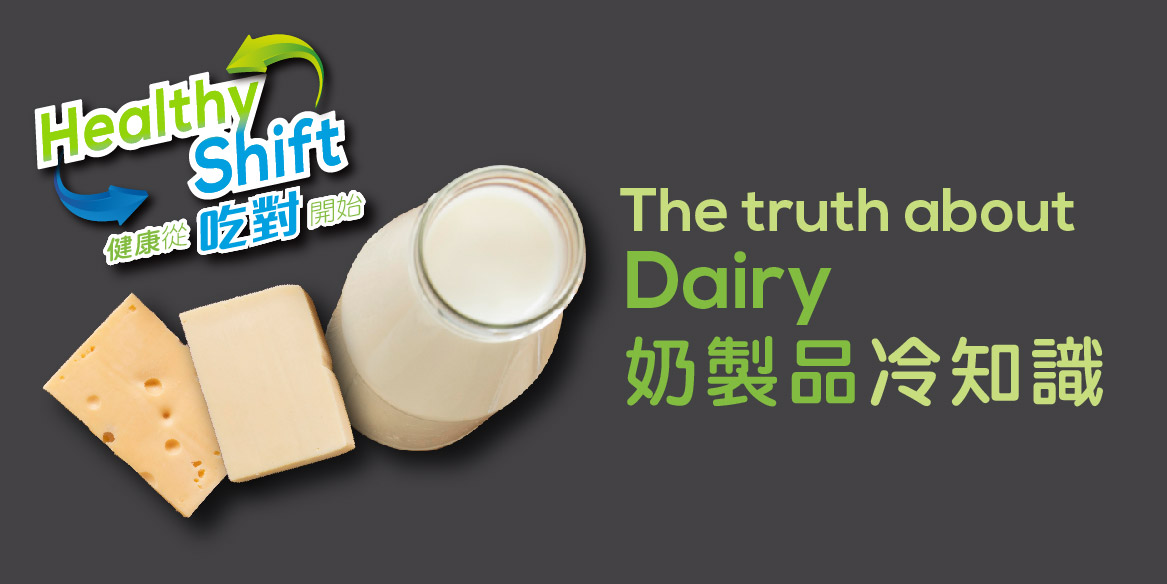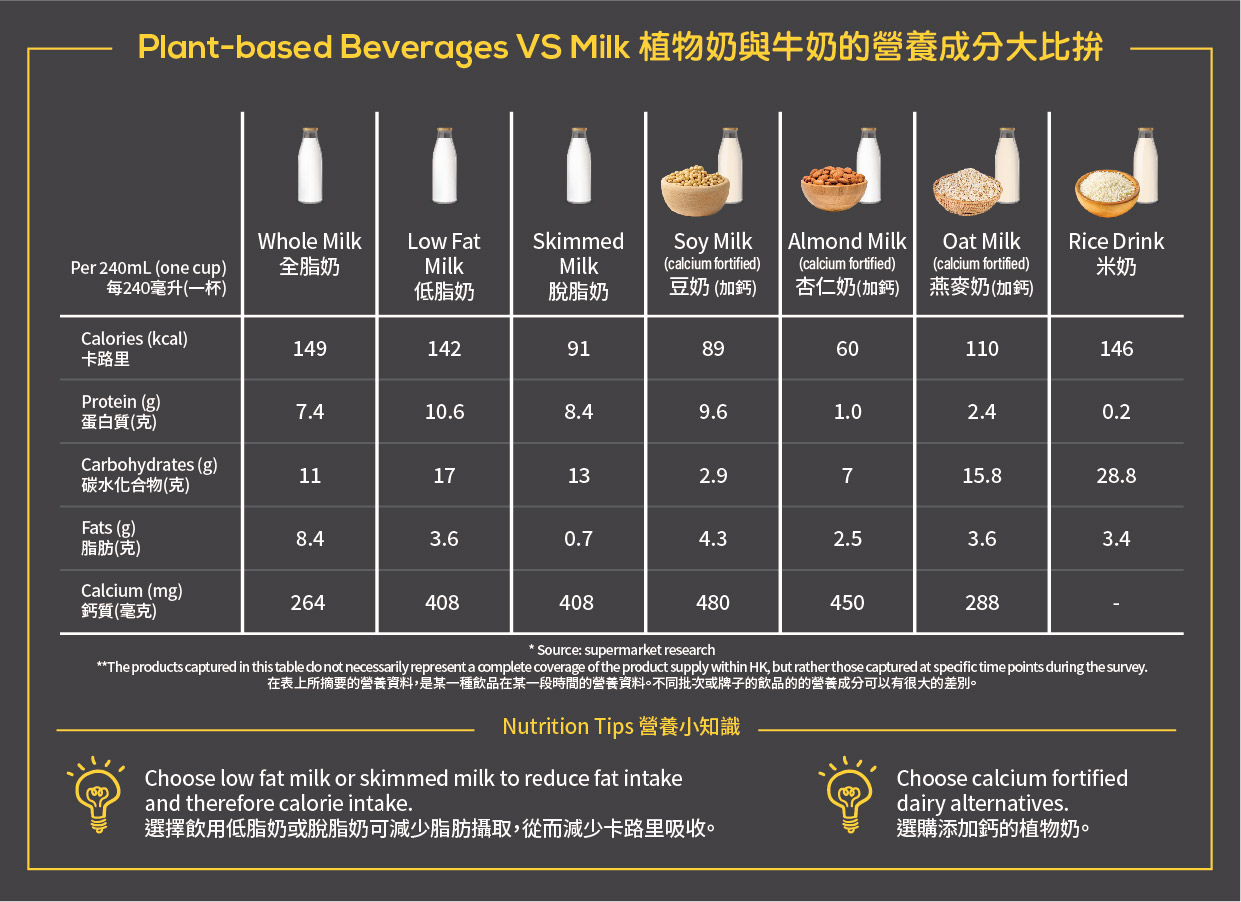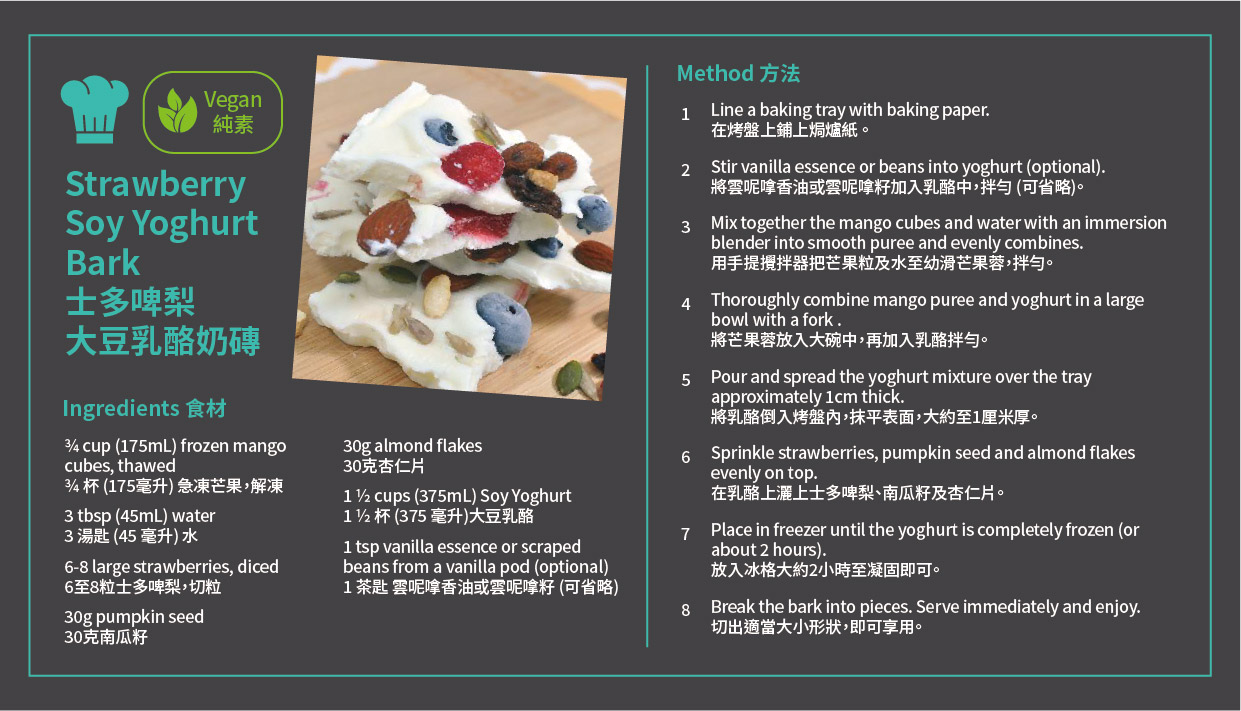[Healthy Shift] The Truth About Dairy
July 15, 2021
blog

Dairy is high in calcium and it is good for our bones and teeth. It also contains carbohydrates (lactose) and protein.
Dairy Directory
Milk:
- Protein: helps build and repair muscle tissue
- Calcium: keeps bones strong
- Vitamin B2: assists in energy production
- Vitamin B12: help form healthy red blood cells
Yoghurt:
- Rich in protein, calcium, phosphorus and B vitamins
- Contains probiotics: good for digestive health and support immune system
Cheese:
- Good source of protein and calcium
- Can increase saturated fat and energy in diet if chosen mostly full fat dairy products
- Some cheese can be high in salt (e.g. processed cheese, cheese spread). Read and compare the food labels. Buy the products with lowest amount of sodium

Nutrition Tips:
- Consumers who are allergic to milk or with lactose intolerance, choose varieties with added calcium (e.g. calcium fortified soy milk or almond milk or soy yoghurt).
- Alternative calcium food sources: canned fish with edible bones (e.g. sardines, salmon), almonds and firm tofu.
Facts and Myths
- Will milk increase mucous production?
No. - Can people with lactose intolerance eat cheese and yoghurt?
Maybe. People with lactose intolerance may be better tolerated with hard cheese and yoghurt which contain less lactose than milk. It is better to consult with your doctors. - Is Greek yoghurt healthier than regular yoghurt?
Not necessarily. The best is to choose low fat or fat free plain yoghurt. Greek yoghurt has more protein than traditional yoghurt due to the manufacturing process. Greek yoghurt makes you feel full for longer.
The Truth About Dairy & Plant-based Beverages
Many customers are selecting plant-based milk over milk. Let’s take a look at the nutritional comparison of the various types of milk!



